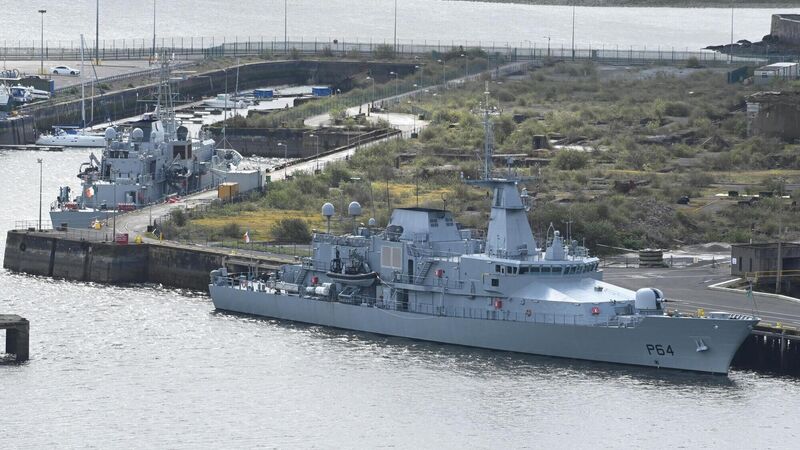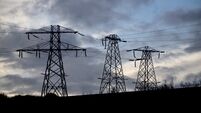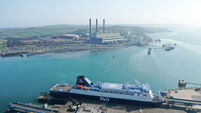Defence gaps mean sabotage of gas energy supply could be 'crippling' for Ireland

LÉ George Bernard Shaw amongst others docked at the naval base in Haulbowline. File picture: Eddie O'Hare
Sabotage of electricity connectors or gas pipelines to Ireland or of a planned floating gas reserve could have "crippling" costs due to the "austere" state of Irish maritime military assets, a security expert has warned.
Brendan Flynn of University of Galway said that while such sabotage attacks might "seem implausible" to Irish people, they could form part of a "crude" strategy to deter European proposals against Russia.













